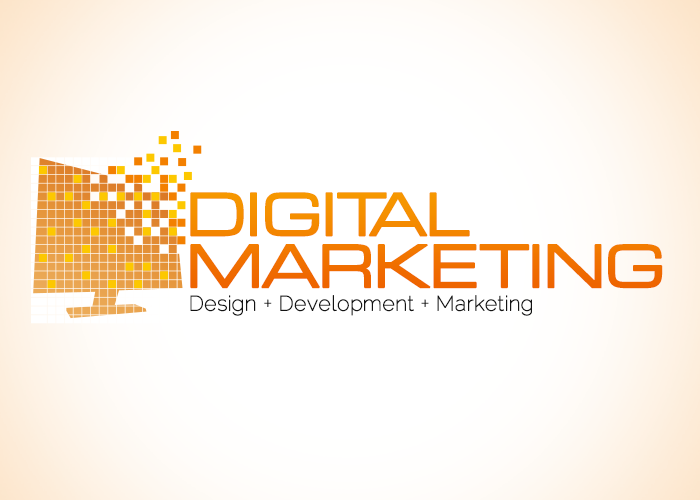Explore the Future of Digital Marketing
The Future of Digital Marketing: Emerging Trends and Technologies
The rapid evolution of technology has transformed how businesses connect with their audiences, and digital marketing stands at the forefront of this revolution. With advancements in artificial intelligence, augmented reality, and machine learning, the future of digital marketing promises to be more engaging, data-driven, and personalized than ever. As we dive deeper into what lies ahead, here’s an exploration of emerging trends and strategies that will shape the digital marketing landscape.
The Future of Digital Marketing

Future of Digital Marketing
1. Personalization and AI-Driven Campaigns
In today’s digital landscape, consumers expect personalized experiences. Personalization has become a critical factor in engaging customers and retaining loyalty. Leveraging artificial intelligence (AI), marketers can now gather real-time data on consumer behaviors, preferences, and purchase history. This data allows them to create tailored campaigns that cater to specific needs and interests.
- AI algorithms analyze browsing patterns and predict future purchases.
- Chatbots powered by AI offer round-the-clock customer support.
- Personalization improves the customer journey, enhancing user experience.
2. Voice Search Optimization
With the increasing popularity of voice assistants like Alexa, Siri, and Google Assistant, optimizing for voice search is becoming essential. Voice search queries are conversational, often longer, and differ significantly from traditional text searches. To remain relevant, brands need to create content that answers specific questions and meets the “natural language” criteria.
Key considerations for voice search optimization:
- Focus on long-tail keywords that mimic natural speech.
- Optimize content to provide direct answers for commonly asked questions.
- Ensure a mobile-friendly website since voice searches are often performed on mobile devices.
3. Visual and Interactive Content
The future of digital marketing is set to be highly interactive. Consumers today crave immersive experiences that go beyond traditional media. From augmented reality (AR) filters on social media to virtual product try-ons, interactive content is gaining traction. It creates a memorable experience for users, encouraging them to engage longer and boosting brand recall.
- Augmented Reality (AR) allows customers to visualize products, such as trying out a piece of furniture or testing makeup virtually.
- Interactive polls and quizzes keep users engaged on social media platforms.
- Video marketing with live-stream shopping events and influencer-led product tutorials adds value for customers.
4. Privacy and Data Security
With increasing concerns around data privacy, future digital marketing efforts must prioritize transparent data collection practices and user consent. Consumers are more conscious of how their data is being used, and companies must adapt to stricter regulations such as GDPR and CCPA. This shift will lead to more privacy-focused marketing practices.
Effective data privacy measures:
- Be transparent with data collection practices and inform users of their rights.
- Implement secure data storage and regular audits.
- Only collect essential data to minimize risks and respect user privacy.
5. Influencer Marketing and Authentic Partnerships
Influencer marketing continues to grow, but with a focus on authenticity. As consumers become savvier, they can differentiate between genuine endorsements and sponsored content. Brands are moving toward long-term partnerships with influencers who align with their values and mission, fostering deeper connections with their target audiences.
- Influencers are focusing on creating value-driven, informative content.
- Brands are increasingly collaborating with micro-influencers for niche markets.
- Authentic partnerships build trust and foster brand loyalty.
6. The Rise of Predictive Analytics
Predictive analytics involves using historical data to predict future trends. With advancements in AI and big data, predictive analytics is becoming an invaluable tool for digital marketers. By analyzing user data, brands can foresee potential customer needs and tailor their offerings accordingly. Predictive analytics enhances decision-making and reduces risks in digital marketing strategies.
7. Omnichannel Marketing
The future of digital marketing emphasizes a seamless user experience across all platforms. Consumers today use multiple devices, often switching from one to another. With omnichannel marketing, brands can offer a consistent experience across various channels, from websites to social media, emails, and in-store experiences.
Benefits of omnichannel marketing:
- Increases customer engagement by providing a unified experience.
- Enhances brand loyalty through personalized interactions.
- Increases conversion rates by providing a frictionless shopping journey.
8. Shoppable Content and Social Commerce
Social media platforms like Instagram, Facebook, and TikTok are now offering shopping features, allowing users to purchase products directly from the app. Shoppable content creates a seamless buying experience, reducing the steps needed for conversion. This trend of “social commerce” is particularly popular among younger consumers who prefer online shopping.
9. The Growing Impact of Video Marketing
Video marketing remains an effective way to engage audiences, but its future is expanding to include live-stream shopping, short-form videos, and interactive stories. With platforms like TikTok and Instagram Reels dominating social media, brands are finding innovative ways to use videos to capture attention.
Popular video marketing formats:
- Short-form videos for quick consumption, such as Instagram Reels.
- Live-stream shopping events hosted by influencers.
- Interactive tutorials that encourage audience participation.
10. Sustainability and Corporate Responsibility
Consumers today value brands that are socially responsible. As environmental consciousness grows, brands must align with sustainable practices to resonate with the modern consumer. Marketing efforts highlighting sustainability initiatives and ethical practices help build a loyal, trust-driven customer base.
Embracing the Future
The future of digital marketing is undoubtedly exciting, with technology making customer engagement more effective than ever before. By embracing personalization, ensuring data security, and adopting interactive and shoppable content, brands can stay relevant in this dynamic industry. As we look ahead, digital marketers will need to keep up with these trends to craft meaningful connections with their audiences and drive long-term success.
In summary, the advancements in AI, voice search, privacy-focused marketing, and interactive content pave the way for a highly immersive, secure, and customer-centric digital marketing landscape. The future of digital marketing will be defined by brands’ ability to adapt, innovate, and engage authentically with their audiences.




